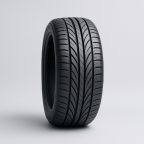
Hit the Road for Less: Tips for Affordable Car Ownership
Ah, the open road—a symbol of freedom, adventure, and, unfortunately, a significant financial commitment. Whether you’re a first-time car buyer or a seasoned driver looking for an upgrade, the costs associated with car ownership can be daunting. The ticket price of a vehicle is just the tip of the iceberg. There’s insurance, maintenance, fuel, and the list goes on. If you’re not careful, your four-wheeled dream can quickly turn into a financial nightmare.
But don’t hit the brakes on your car-owning aspirations just yet. Affordable car ownership is not a myth; it’s entirely within reach if you know the ropes. In this comprehensive guide, we’ll steer you through smart choices and savvy strategies that won’t drain your bank account. From optimal financing to fuel-efficient driving, you’ll find actionable tips to make your journey on the road less financially taxing.
So, fasten your seat belts and adjust your mirrors; we’re about to venture into a world where owning a car doesn’t have to empty your wallet. Ready? Let’s get rolling!
The Real Costs of Car Ownership
If you think the sticker price on your dream car is the only expense you need to worry about, you’re in for a rude awakening. Initial cost is just one component of a complex financial equation. There’s insurance—where premiums can fluctuate based on your age, driving history, and even the type of car you choose. Then, of course, there’s the petrol station, a place you’ll become all too familiar with as a car owner. And let’s not forget about routine maintenance and unexpected repairs, which have a knack for popping up when least convenient.
Understanding the comprehensive layout of these expenses gives you the upper hand in managing them. Knowledge is your first line of defence against an empty wallet. Get a grip on the different types of costs associated with car ownership, and you set the stage for mastering the art of affordable driving. You can then budget wisely, making room for both essentials and occasional splurges like that road trip you’ve been dying to take.
Making the Right Choice: New vs Used Cars
The new car smell is intoxicating, but so is the rapid depreciation that hits you the moment you drive off the lot. On the flip side, used cars come with a more palatable price tag but may carry the burden of hidden issues and fewer warranties. The choice isn’t black and white; it’s a balancing act between cost and comfort, between the assurance of a new vehicle and the economical sensibilities of a pre-owned one.
If you’re a budget-conscious individual, a well-maintained used car can be a treasure trove of savings. Cars lose value at a staggering rate, and letting someone else absorb that initial hit can work in your favour. When opting for a used vehicle, however, vigilance is key. Research the model’s reliability, consult consumer reviews, and always—always—get a pre-purchase inspection from a trusted garage.
Yet, if the allure of a new car, complete with modern amenities and a full warranty, is too strong to resist, you can still find ways to make it more affordable. Opt for last year’s model when dealerships are eager to clear out inventory or consider a smaller car with fewer add-ons. The goal is to pick a vehicle that satisfies your needs without taking a sledgehammer to your financial stability.
Financing Smartly: What You Need to Know
Car financing isn’t just a necessary evil; it’s an opportunity. With the right game plan, you can secure a financing arrangement that allows you to comfortably own a car while keeping your finances intact. If you are seeking tailored packages and same-day approvals, professional auto finance providers can streamline the process with on-site managers and no-obligation quotes. You’ll encounter various options, such as loans from banking institutions, dealership financing, and even some alternatives like no-deposit car finance.
Let’s tackle that no-deposit required option. On the surface, it sounds like a dream—getting the keys to your car without an initial lump sum. But, as you may suspect, the monthly payments and interest rates might be higher. It can be a solid option, however, for those without immediate cash resources. Just be sure you understand the long-term implications and have mapped out how it fits into your budget.
Shopping for the best financing deal is another strategy you shouldn’t overlook. While it may be convenient to accept the first offer that comes your way, a little research can lead to significantly lower interest rates or better terms. Your future self, cruising down the highway without financial care in the world, will thank you.
Optimising Insurance Costs
When it comes to insurance, let’s be honest—the less you can pay while still getting quality coverage, the better. But how do you navigate the labyrinth of options, terms, and conditions to find the best rate? The good news is, there’s no need to be an insurance expert to master this game. A few well-placed moves can yield impressive savings.
First off, shop around. Different providers offer various rates, and the difference between the highest and lowest can be staggering. Make use of online quote comparison tools or consult an independent insurance agent to get a range of quotes.
Another option is bundling insurance. If you already have homeowners or renters insurance, see if you can bundle your auto coverage with the same company. This is often rewarded with a hearty discount. Finally, consider usage-based or pay-as-you-drive options. These programs monitor your driving habits and charge you based on actual mileage and behaviour, potentially saving you a lot.
Maintenance: The Key to Long-term Savings
Regular maintenance might seem like a hassle, but consider it a long-term investment in your vehicle’s health—and your financial well-being. Routine oil changes, tire rotations, and brake inspections can extend the lifespan of your car and save you from pricier, catastrophic repairs down the line.
Getting hands-on can save you even more. Simple tasks like changing your air filters, checking your fluid levels, or even doing your oil changes can cut down on maintenance costs. And the satisfaction of a job well done? Priceless.
So, instead of seeing maintenance as a burdensome cost, embrace it as an ally in your quest for affordable car ownership. Keep a calendar of recommended service intervals and stick to it. Your car will run smoother, last longer, and fetch a better resale value. Now that’s a win-win-win.
Fuel Efficiency: Drive Smart, Save Big
When it comes to fuel, the mantra should be efficiency over extravagance. Those frequent trips to the petrol station can sting less if you adopt some savvy fuel-efficient practices. Start with your driving habits; aggressive driving with rapid acceleration and hard braking is a fuel guzzler. Adopt a smoother driving style, plan your routes to avoid congested areas, and you’ll notice the needle on the fuel gauge drops slower.
Tire maintenance is another often overlooked factor. Poorly inflated tires make your car work harder, which burns more fuel. So, check those tire pressures regularly and keep them in the recommended range for your vehicle.
Selecting a car with high fuel efficiency from the get-go can also pay dividends in the long term. Many modern vehicles come equipped with fuel-saving technologies, like start-stop systems, that can significantly cut down on your fuel expenses over time. Make this a priority in your selection criteria, and you’ll enjoy the savings mile after mile.













